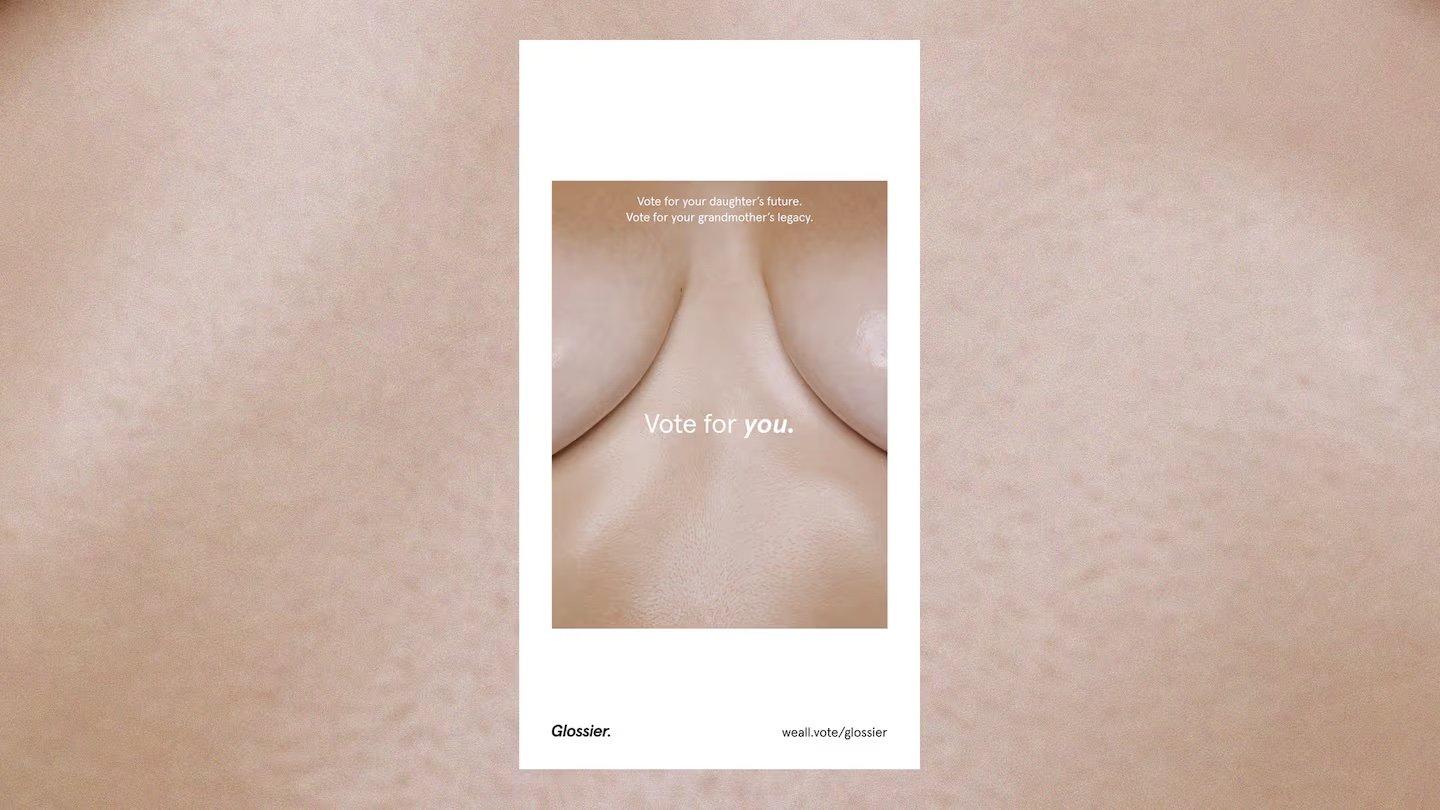ARE BRANDS PLAYING IT TOO SAFE IN THE 2024 ELECTION?
Marc Jacobs' iconic "The Tote Bag" transformed into "The Vote Tote" in early October, unveiling a politically charged edition of their signature handbag. Swapping "Tote" for "Vote," this limited-edition piece is available exclusively in the large size, with 100% of proceeds going to Rock The Vote, a nonpartisan nonprofit focused on voter registration and education. Although the organization promotes civic engagement without overt bias toward either political party, a deeper scroll reveals posts advocating for reproductive rights.
(Marc Jacobs)
With election day approaching, brands are becoming increasingly vocal about their political stances. Consumers' reactions vary based on their political alignment and how closely they tie their values to it. While some are indifferent to the political endorsements of brands or celebrities, others avoid companies that support opposing viewpoints. This has fueled online debates about whether brands should publicly endorse political candidates. However, it’s widely accepted that these choices do influence consumers, and some brands are mastering this balance.
This trend isn’t new—2016 marked a shift when brands began subtly endorsing political campaigns aligned with their values. But by today's standards, that approach is now considered "playing it safe."
Some brands have successfully integrated their political stances into their identity. Reformation, known for its sustainability focus, promotes its eco-friendly message with wit, stating, "Being naked is the #1 most sustainable option. We're #2." Their playful advocacy for climate change resonates with eco-conscious consumers, especially women who are already aligned with the brand's values. In this case, political alignment likely enhances customer loyalty rather than deterring potential buyers.
Glossier, the "people-powered" beauty brand, took a more direct approach with a bold ad on the back page of The New York Times. The message—"Vote for your daughter’s future" and "Vote for your grandmother’s legacy"—was a powerful call to action, emphasizing women's rights and voting. The brand also partnered with IGNITE National and Reproductive Freedom for All, organizations advocating for women’s voting rights and bodily autonomy. The ad’s placement, its eye-catching design, and the prestige of the publication made it a standout piece of creative activism.
The ads, designed by Glossier's Creative team, will run on billboards, mass transit, and college campuses until Election Day. (Glossier)
Aligning with political ideologies is a significant risk for brands, as it could either bolster or harm their business. Celebrities, whose personal brand is integral to their livelihood, face similar risks. Taylor Swift, for example, remains one of the most influential pop stars in the world. After remaining politically silent for years, she finally broke her silence on Instagram, endorsing Harris in the upcoming election. Predictably, this led to backlash from Republican fans, politicians, and even former President Trump. However, Swift’s devoted fanbase across the political spectrum ensures her endorsement won’t impact her financial success.
Meanwhile, emerging artists like Chappell Roan have faced pressure to disclose their political affiliations, often leading to public outbursts or reluctant admissions. Celebrities were never intended to be political figures, yet their endorsements can carry significant weight.
While brands and public figures may not single-handedly sway voters from one side to another, they can help undecided individuals make a choice. For some, a gentle nudge from a favorite brand or celebrity may be all it takes to break free from indecision and cast a vote.



